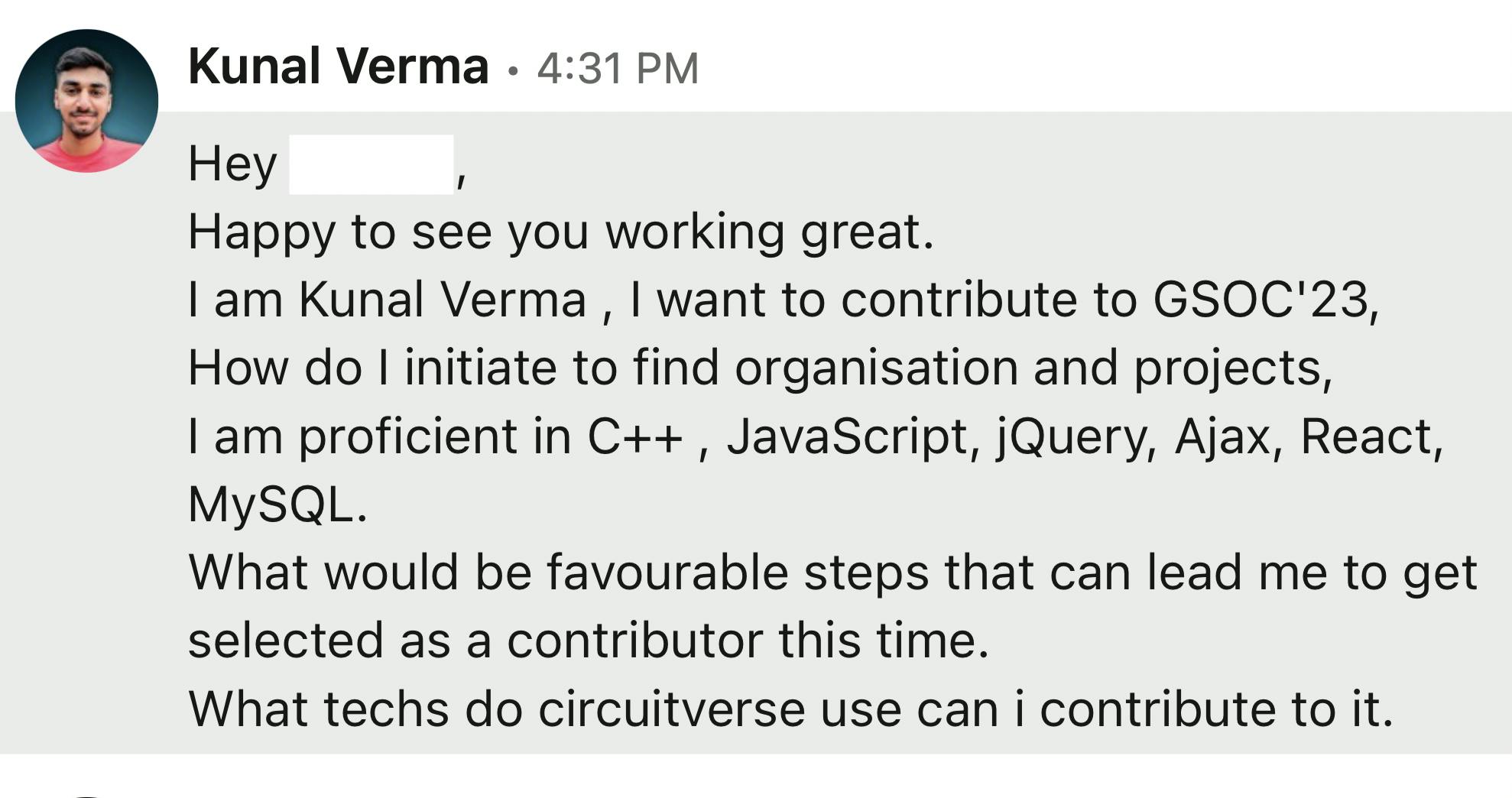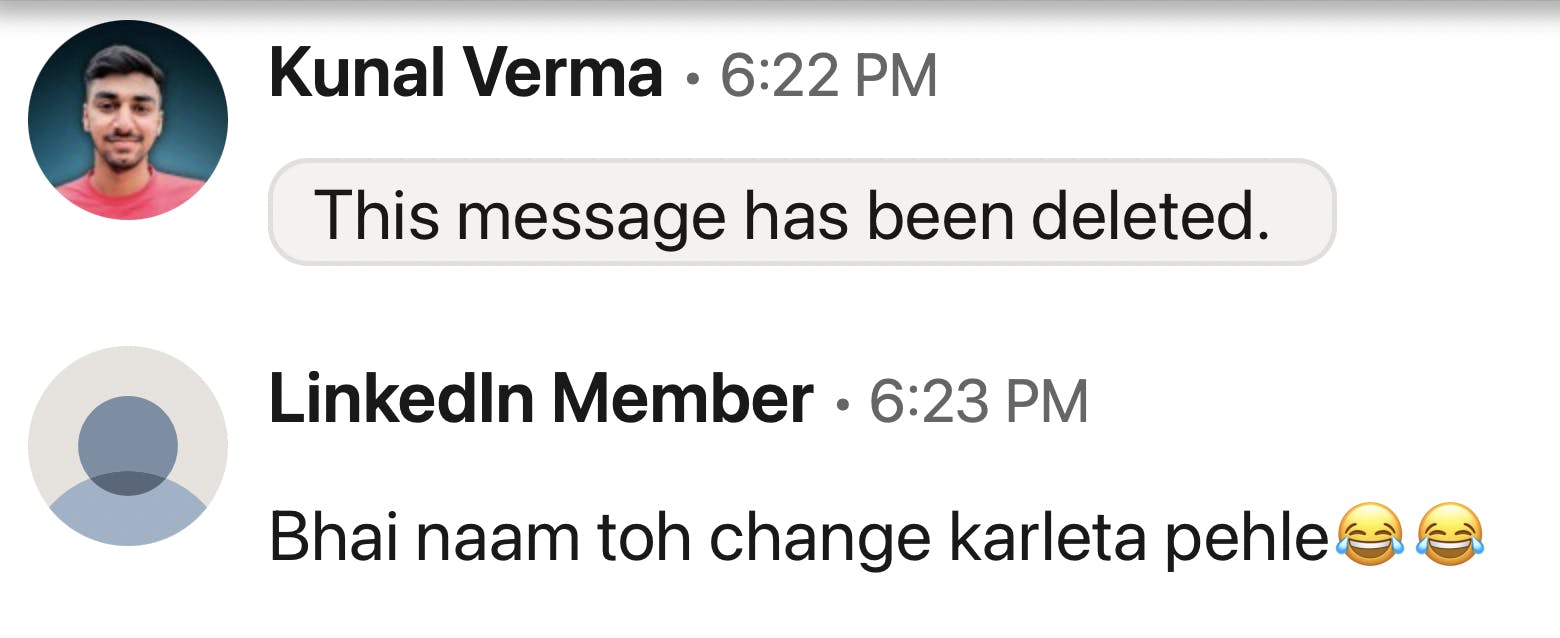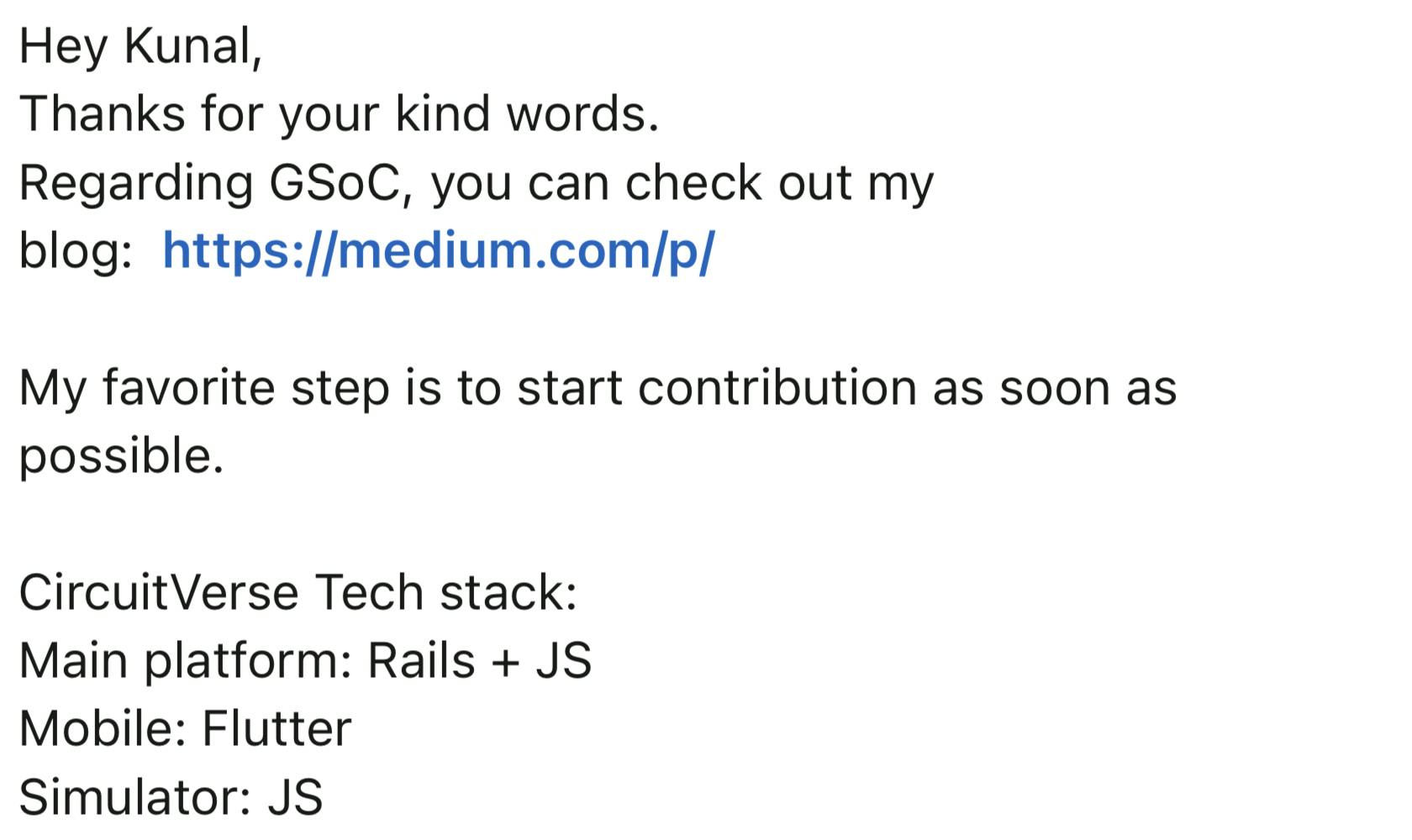I think this series of blogs will be a good help to all the budding people out there aiming for Google Summer Of Code.
It all began in early October 2022, when I heard about Hacktoberfest. The goal of the event was to make at least four pull requests to open-source projects and get a free t-shirt or plant a tree in a person's name. I thought it would be a fun challenge, so I decided to give it a shot.
The Start of My Open-Source Journey

In the pursuit of getting that free t-shirt 😅🤭, I began to find open-source projects to contribute to. I quickly realized that Hacktoberfest was a program designed to encourage people to get involved in open-source and familiarize them with tools like Git and GitHub. As I completed my first pull request, I felt a sense of accomplishment and began to understand the gist of what open source was truly about.
The journey of a thousand miles begins with one step 🧗🏻♀️
After Hacktoberfest, I found myself watching more videos and reading more articles about open-source. I was captivated by the idea of people working together to create something bigger than themselves. I also came across a program called Google Summer of Code (GSOC), which is a program that provides stipends to students to work on open-source projects during the summer.
My Quest to Crack GSoC
In November, when my end-sem exams were about to get over, I started exploring GSoC with full power.
I read about it on Quora.
Watched around 30 to 40 videos on YouTube. (some were really unique and informative)
Tried many ways to understand the program better.
Key takeaways from the resources I explored ->
Find a project aligning with your tech stack.
Join their community channel and introduce yourself to the community.
Start contributing to the codebase.
Create and submit a solid proposal.
But I wasn't satisfied with this information, and I didn't know how to find organizations or project issues to contribute to.
That's when I had an idea 🙋🏻♂️
I started to follow as many people as I could who cracked GSoC the previous year and created a generic message asking all my doubts, and sent it to all the people I followed.

In the process, I made some mistakes like sending the same message to different people, and I felt ashamed 😔 as pointed out by one person, (After this I carefully read the message twice before sending it and kept improvising messages.)

this was really embarrassing.
This experience taught me the importance of doing my own research and framing specific questions.
The responses I got were amazing...🥳
-> Most of the people replied and gave different perspectives and points of view from their own experiences.😊
-> They shared things they kept in mind and some even sent their blogs they wrote on their journey.🛫

-> One person was so humble and helpful that he came on a Google Meet to help me understand the process and how to perform them to be on the correct path. We had a 1-hour talk on these topics and he told me about the benefits he got after GSoC, how to leverage opportunities from GSoC, and how GSoC helped him upskill and make more connections.🤗
-> Went through most of the posts regarding Google Summer of Code on LinkedIn.
After consuming all this content, I felt more than confident and imagined a full plan and roadmap in my mind to crack GSoC.🤫
The internet is a vast ocean of knowledge🏄♂️, with an abundance of resources available at our fingertips🖐🏻. The key is to navigate it effectively and find ways to leverage this information in your favour.✊🏻
Key Takeaways
Always consume content from those who themselves have achieved the thing you want to achieve.
Do your own research first and explore all resources available before asking anybody. Make sure to exhaust all options before reaching out to others for help.
Don't ask silly questions that can be easily found with a quick Google search. It's important to be specific and ask questions professionally.
It's important to frame your questions in a way that is clear and to the point, rather than vague or overly broad.
For example -> instead of asking "How can I crack GSoC?", ask something like "What are the steps for finding projects and issues to contribute?"
Don't over-message anyone. Keep in mind that people are busy building great things out there and it's important to respect their time. Be mindful of how often you reach out to others and make sure to ask meaningful questions so that it doesn't come across as irritating or demanding. You will have to figure it out by the responses you get.
That's all from my side for this experience blog. I will be creating a Series of preparing for GSoC with my own experience.
Upcoming Blog would be->
Preparing For GSoC :> Search for an Organisation to Contribute
Hope you enjoy reading it. If you are also in the process of a journey to open source, Do share your views and experience below 🤗. If you think something can be added to this reach out to me, I will be more than happy to know various points of view. 👋
